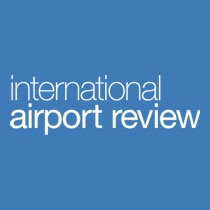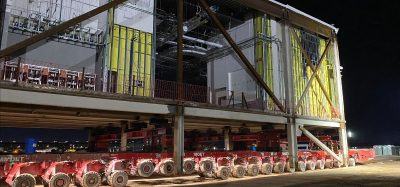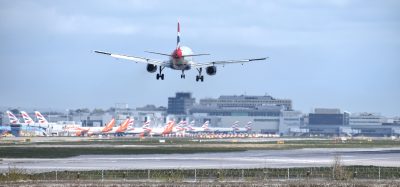Securing the cargo industry
- Like
- Digg
- Del
- Tumblr
- VKontakte
- Buffer
- Love This
- Odnoklassniki
- Meneame
- Blogger
- Amazon
- Yahoo Mail
- Gmail
- AOL
- Newsvine
- HackerNews
- Evernote
- MySpace
- Mail.ru
- Viadeo
- Line
- Comments
- Yummly
- SMS
- Viber
- Telegram
- Subscribe
- Skype
- Facebook Messenger
- Kakao
- LiveJournal
- Yammer
- Edgar
- Fintel
- Mix
- Instapaper
- Copy Link
Posted: 3 October 2012 | Harald Zielinski, Head of Security and Environmental Management, Lufthansa Cargo AG
Security continues to be a major issue within aviation. Passenger screening often gets the spotlight but the process of overseeing efficient cargo operations whilst maintaining tight security procedures is also an important aspect of the sector. Mark Glover from International Airport Review, spoke to Harald Zielinski, Chief Security Officer Cargo at Lufthansa Cargo Services and discussed the evolution of screening technology, cargo associations and the challenges that the industry may face in the future.
Mark Glover: How far has the development of security screening technology come within the industry?
Harald Zielinski: At the moment, I believe the development of air cargo security technology has probably reached its maximum potential and I do not expect any serious developments any time soon.
In some ways, the use of sniffer dogs is something that is still very much an option in terms of security processes, in particular the free-running dogs which are trained to detect explosive devices.


Security continues to be a major issue within aviation. Passenger screening often gets the spotlight but the process of overseeing efficient cargo operations whilst maintaining tight security procedures is also an important aspect of the sector. Mark Glover from International Airport Review, spoke to Harald Zielinski, Chief Security Officer Cargo at Lufthansa Cargo Services and discussed the evolution of screening technology, cargo associations and the challenges that the industry may face in the future.
Mark Glover: How far has the development of security screening technology come within the industry?
Harald Zielinski: At the moment, I believe the development of air cargo security technology has probably reached its maximum potential and I do not expect any serious developments any time soon.
In some ways, the use of sniffer dogs is something that is still very much an option in terms of security processes, in particular the free-running dogs which are trained to detect explosive devices.
MG: How easy is it to maintain effective cargo efficiency whilst having to use such stringent security screening methods?
HZ: Security screening cargo is now really part of the overall process. This process begins from the moment the cargo is delivered to the warehouse when it is checked at the first point of arrival. However, we are always prepared for what is arriving through our doors owing to the close relationship we have with the customer throughout the process.
With 85 per cent of all deliveries we are aware of what security measures need to be implemented for that particular shipment. We undergo spot checks even for shipments that we know have been cleared. There may, for example, be signs of tampering; such as a seal breaking on a long trip, yet they still need to be checked. These procedures are undertaken by our handling intelligent departments alongside the security department.
Whoever delivers and receives the shipment is always aware of the next step. As a company we are always 100 per cent aware of what is going to be delivered so it is never a surprise. In fact, we are always aware of the data around the consignment which allows us to implement the correct type of security.
MG: You currently offer ‘premium security’ at some of your hubs. Can you explain exactly what this is and how it differs from your other cargo centres?
HZ: Our premium security hubs offer the same level of security as our other cargo centres, fulfilling all of our security regulations and security level requests. However, the ‘package’ that we offer within this premium security service is of an extremely high standard including internal security, digital CCTV and exceptional customer service. As mentioned, we still fulfil our security needs but within a ‘premium’ environment.
MG: How important are the relationships that you foster with the various cargo associations?
HZ: They are very important. Within the cargo sector it is very important to have good relationships with the various associations. Ultimately, the size of the association doesn’t necessarily matter, it is about how you and the members can solve a problem and push together towards a common goal. I would say that we have five groups that we call our ‘premium’ groups, where we can accomplish some big steps. Ultimately, I look to be involved with groups that make the correct decisions and are able to communicate effectively with its members.
MG: What challenges do you feel the industry currently faces?
HZ: Around the world, every country deals with air cargo, and each continent has a different set of regulations. For example, America is overseen by the Transport Security Administrations (TSA) and Europe by the European Commission. I think that overall, there needs to be a mutual recognition of cargo security regulations that is harmonised around the world.
In Europe it is always important to see what America does in terms of cargo security; we aim to learn from them and likewise, they aim to learn from us as well. Yet, overall it is important that a worldwide standard security level is reached across all levels of cargo.
The other challenge is the financial cost that is currently involved with cargo security. I predict that this cost will keep rising. When you look at the costs from 10 years ago compared with what they are today, the increase is simply staggering. These costs come from the setting up of warehouses, cargo inspectors, new staff and new intelligence. Of course, you cannot put a price on safety and at the same time we need to remain efficient. If air cargo becomes slow, then customers can always use ships if they wish. In air cargo, security has to be efficient and part of the process
MG: How important is your relationship with the airports?
HZ: The relationship we have with the airports is good. This relationship is very important to all involved parties, it has to be.
From a security perspective, passenger screening is one of the current major concerns for airports and this should be the same for cargo screening. This is why we have a good relationship with the airports as it enables us to work together on such an important element of aviation safety but I still think there is a long way to go.
In some airports, they focus, quite rightly, on the passengers as cargo may not play a huge part of their operations. In Frankfurt, where we are based, we are part of the airport and have our own premises and are secure, for some airports the cargo area itself is not secure but this must change. The security level within the cargo area does not need to be at the same level as the apron but perhaps at a level of security between what is instigated at the apron and the passenger terminal buildings.
About the author
Harald Zielinski joined Lufthansa in October 1988 and worked initially in corporate security, where he was responsible for aviation security in the United States, the UK and Eastern Europe, as well as for general airfreight security issues.
In 1994 he set up a dedicated Freight Security department and the following year was appointed Head of Cargo Security. Four years later, he assumed the position of General Manager, Valuable Cargo Services at Lufthansa Cargo.
With effect from 1 December 2003, Harald took over the position of Head of Security and Risk Prevention Management at Lufthansa Cargo. At that post he is responsible for the worldwide security measures of Lufthansa Cargo. Since 1 July 2008 he has also been responsible for environmental management.
Issue
Related topics
Air freight and cargo, Airside operations, Baggage handling, Security


















